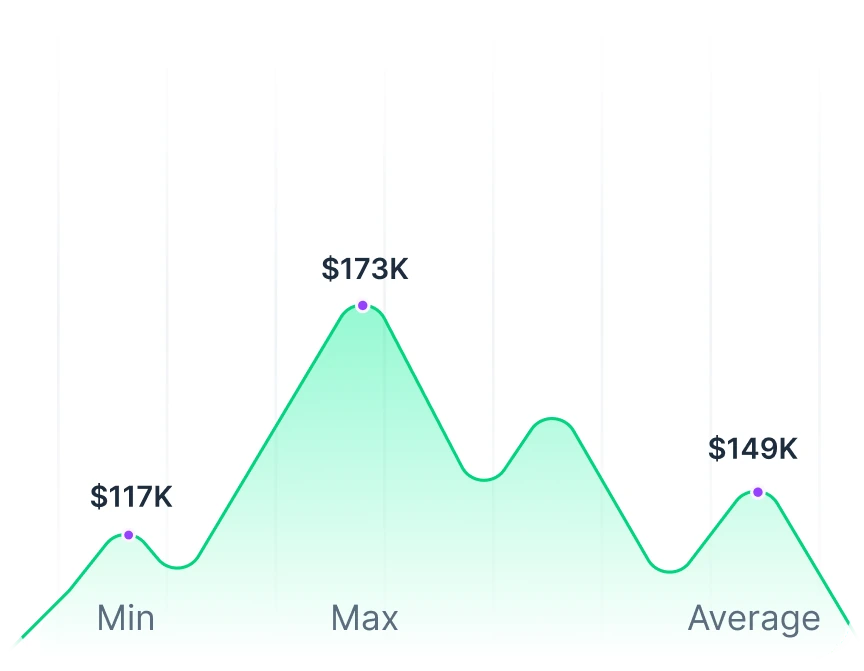Understanding the Career Transition
Understand how a career transition from Admin to DevOps engineer is possible through the following comparison:
System Administrator vs DevOps Engineer
System Administrator Focus:
- Maintaining IT infrastructure stability
- Server and network management
- User support and troubleshooting
- Security implementation and monitoring
- Backup and disaster recovery
DevOps Engineer Focus:
- Automating software delivery processes
- Building CI/CD pipelines
- Infrastructure as Code (IaC) implementation
- Cloud platform management
- Bridging development and operations teams
Market Demand and Salary Comparison
Find out the reason for shifting to DevOps engineer role:
Current Market Trends
The DevOps market is experiencing unprecedented growth, with organizations increasingly adopting agile methodologies and cloud-native technologies. Companies are seeking professionals who can:
- Reduce deployment time from weeks to hours
- Implement automated testing and monitoring
- Manage scalable cloud infrastructure
- Foster collaboration between teams
Salary Insights
| Role | International Range | India Range |
| System Administrator | $60,000 - $80,000 | ₹4,00,000 - ₹8,00,000 |
| DevOps Engineer | $90,000 - $130,000 | ₹10,00,000 - ₹20,00,000 |
Career Growth
DevOps Engineers can expect a 25-40% salary increase compared to System Administrator roles.
Top Hiring Companies
- Amazon Web Services (AWS)
- Microsoft Azure
- Google Cloud Platform
- Netflix
- Spotify
- Uber
- Atlassian
Essential Skills for Transition
To make the transition possible, candidates must acquire certain skills to fit into the DevOps engineer role, such as:
Technical Skills Required
1. Scripting and Automation
- Python, Bash, PowerShell
- Configuration management tools (Ansible, Puppet)
- Infrastructure automation
2. CI/CD Pipeline Management
- Jenkins, GitLab CI, Azure DevOps
- Version control with Git
- Automated testing frameworks
3. Cloud Computing Expertise
- AWS, Azure, Google Cloud Platform
- Containerization (Docker, Kubernetes)
- Serverless computing
4. Infrastructure as Code (IaC)
- Terraform, CloudFormation
- Environment provisioning and management
- Resource optimization
5. Monitoring and Logging
- Prometheus, Grafana, ELK Stack
- Application performance monitoring
- Log analysis and alerting
Soft Skills Development
- Collaboration: Working effectively with development teams
- Communication: Articulating technical concepts clearly
- Problem-solving: Innovative approach to infrastructure challenges
- Adaptability: Keeping pace with rapidly evolving technologies
Transition Roadmap
If you are planning to make the transition, then you can split your transition period as follows to make the evolution and make the changes accordingly:
Phase 1: Foundation Building (Months 1-2)
- Learn DevOps fundamentals and methodologies
- Understand Agile and Lean principles
- Get familiar with version control systems
Phase 2: Skill Development (Months 3-4)
- Master scripting languages (Python/Bash)
- Hands-on experience with CI/CD tools
- Cloud platform basics and services
Phase 3: Advanced Implementation (Months 5-6)
- Infrastructure as Code practices
- Container orchestration with Kubernetes
- Monitoring and logging implementation
Phase 4: DevOps Certification and Job Preparation
- Pursue relevant DevOps certification programs (AWS DevOps, Azure DevOps) understanding the DevOps Certification Worth helps you choose the right path.
- Build a professional portfolio showcasing automation projects
- Interview preparation and professional networking
- Complete System Administrator to DevOps Engineer transition documentation
StarAgile Advantages on DevOps Training
Your training program makes you stand out in the competition and can get you a job. StarAgile has multiple benefits for your career transition.
Expert Trainers
Expert trainers who bring 10+ years of industry experience will help during the training.
Comprehensive Learning Path
Our curriculum is designed specifically for professionals transitioning from traditional IT roles, ensuring smooth knowledge transfer and skill development.
Industry-Relevant Training
Course content is updated regularly based on current market demands and emerging technologies, including AI/ML integration in DevOps practices.
Placement Assurance
With partnerships across 350+ companies and dedicated career services, we ensure our students secure roles in top organizations.
Ongoing Assistance
Our strategic mentors offer end-to-end career guidance from enrollment to placement and even after securing a role.
Conclusion
Moving from System Administrator to DevOps Engineer is a smart choice strategically, and it results in rapid career advancement, improved salary, and access to advanced tech. This journey can be effortless and incredibly beneficial if coupled with thorough training, a strong commitment, and assistance from seasoned professionals.
StarAgile’s full-fledged DevOps training program offers the best combination of theory and practice will help you land successfully in DevOps domain. It includes valuable industry connections which ensures success in the specific field of your interest. Ready to transform your career?
Don’t worry, Join StarAgile's DevOps Training and become a highly-skilled DevOps Engineer.
Frequently Asked Questions (FAQs)
1. How long does it take to transition from System Administrator to DevOps Engineer?
The transition typically takes 6-8 months with dedicated learning and practice. StarAgile's structured program spans 6 months, including 150+ hours of training, practical assignments, and internship certification. The timeline depends on your current skill level, learning pace, and time commitment to hands-on practice.
2. Do I need programming experience to become a DevOps Engineer?
While programming knowledge isn't mandatory, basic scripting skills are essential. StarAgile's program covers scripting languages like Python, Bash, and PowerShell from fundamentals to advanced levels. System Administrators often have some scripting background, which provides a good foundation for DevOps tools and automation.
3. What is the salary difference between System Admin and DevOps Engineer roles?
DevOps Engineers earn significantly more than System Administrators. Internationally, System Admins earn $60,000-$80,000 while DevOps Engineers earn $90,000-$130,000. In India, the ranges are ₹4-8 lakhs for System Admins and ₹10-20 lakhs for DevOps Engineers, representing a 25-40% salary increase.
4. Which DevOps certification should I pursue during the transition?
Popular DevOps certifications include AWS Certified DevOps Engineer, Azure DevOps Engineer Expert, and Docker Certified Associate. StarAgile provides comprehensive DevOps certification preparation as part of the training program, helping you choose the most relevant certification based on your career goals and industry demand.







 The IT industry is rapidly evolving, with professionals seeking career advancement opportunities in high-demand roles
The IT industry is rapidly evolving, with professionals seeking career advancement opportunities in high-demand roles 















